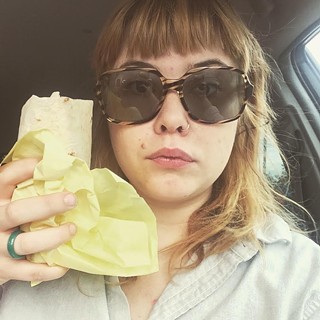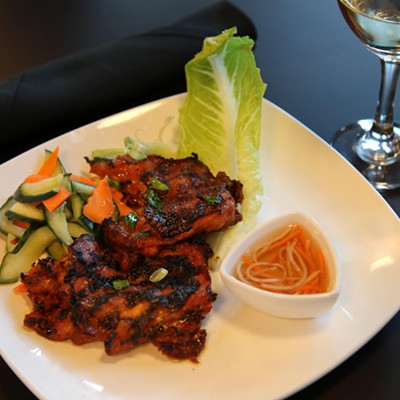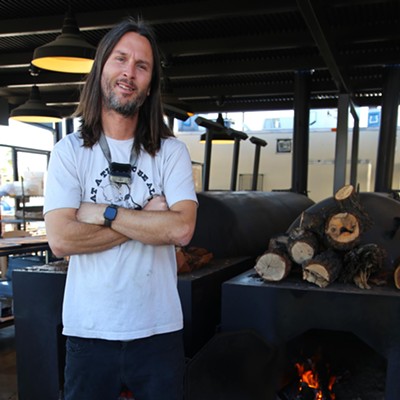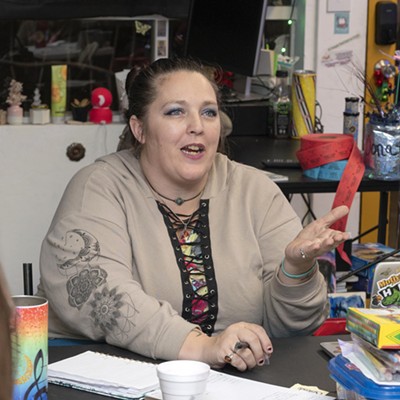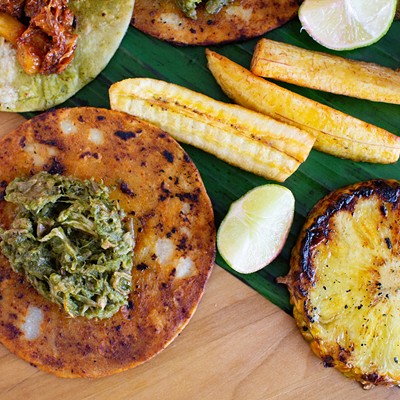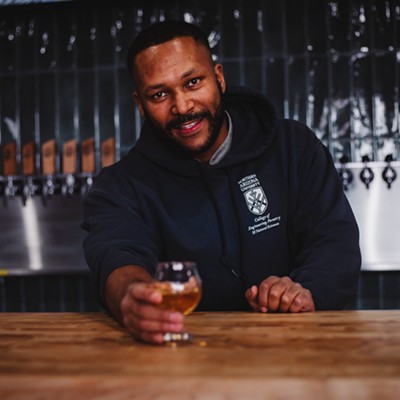“You really need to invest in the community if you want to see a positive outcome,” baker Don Guerra says. This, essentially, is his driving force behind everything he does at Barrio Bread, from grain sourcing to business practices. “Access to knowledge is everything…I want to donate time and share it with the community. You can’t hoard it.”
It’s just that attitude that recently saw Guerra sharing what he’s learned over the past five-plus years as a “community supported baker” at a university abroad. Guerra spoke at National Taiwan University as a part of his “Bread without Borders” campaign, discussing the ways to build a “local grain economy” and more. With that knowledge and commitment to symbiosis as an economic driver, he’s also recently been awarded a federal grant through the United States Department of Agriculture’s Agriculture Marketing Service.
The AMS awarded over $11 million in grants to 160 different programs and businesses for “Local Food Promotion,” and, of that $11 million, Guerra received $100,000 to help grow the work he’s already been doing in the community by finding viability in the marketplace for local heritage grains. Guerra says the money will help with the initial investment needed to open a brick-and-mortar bakery, as he is currently doing all of his baking from his garage.
“It was like an incubation period for me. Doing it this way allowed me to put all the pieces into place, and it’s great because all those things are what I’ve been doing the last five years—it was a perfect fit,” Guerra says. Simply put, Guerra says he supports the local grain economy, makes bread and works on outreach education.
To Guerra, supporting the local grain economy means more than simply buying up those heritage and locally grown grains to use in his bread. It also means helping to create a steady demand for the local grains in order to keep the small farms that are dedicated to this growing niche in business.
Currently, Guerra works with BKW Farms in Marana as an advisor for their seed selection. While the Sonoran white wheat may be the biggest name in Arizona’s local grain game right now, Guerra says he likes to work as the intermediary “test baker” between local farms and UA’s agriculture program. “Sonoran white wheat has been a model for what’s possible in the grain economy,” Guerra says. “But it’s not the best for bread.”
You can look forward to breads with Khorasan (commonly known as Kamut), durum (which is commonly used for pasta), purple barley, hard red spring wheat and more.
“I like to combine and make different formulas,” Guerra says. “Painters have their palette of paint, and I have these local flours. I like it because it has no standard. If I was making baguette, people would know what it should be, but for me the sky’s the limit.”
As part of Guerra’s grant proposal, he vowed to operate using 20 percent local grains in the first year of operation. Guerra is already using 50 percent local grains.
“It’s where I want to go, not just in terms of flavor,” he says. “It’s really a belief that if we want to do this, we need as many people involved to help the farmers. It’s where the whole food movement is going.”
Barrio Bread isn’t just innovating with local grains, though. Guerra has used his place as a “community supported baker” to make connections with local breweries like Iron John’s and Borderlands, as well as Hamilton Distillers, to use their spent grain—which typically goes unused after the fermenting process—to make bread.
“For me, it’s a lot of fun and shows people that it is a craft business,” he says. “It’s also a collaborative piece, though. I want other people to shine in the community.”
At this time, Guerra estimates that he’s making 900 loaves of bread per week—all of which he makes himself by hand. You can find his bread at local farmers markets and CSAs, as well as the base for The Coronet’s tartines and R Bar’s new grilled cheese offering. Maynards and The Good Oak will also be serving Barrio Bread in the near future.
Once his bakery is open, which he anticipates to be in late April or early May of 2016, Guerra says his production will immediately double and eventually triple. While the grant money will pay for Guerra’s equipment, with the use of expensive local grains and the new overhead of a rented space, he says Barrio Bread will be raising prices a little to compensate.
“My loaves would sell for $5 or $7.50 in Phoenix. My bread is too cheap,” Guerra says.
In order to cut down on waste, Guerra says not to expect a typical bakery experience when you walk into his new space (he was not ready to announce the location). The exhibition-style bakery will show off everything in order to make sure the space is as much about baking as it is education. However, you won’t be able to just walk in and buy something. Rather, Guerra wants his business to run on an order-in-advance model.
“I don’t really want to be labeled as a bakery. I won’t be making Danishes or croissants,” he says. “I had two bakeries before, and you have to think differently as an entrepreneur—you think about what pieces you can keep and what has to go.”
“The grain is a lot more expensive. I’m using something that costs more than double and I want to do it in a way that minimizes overhead,” Guerra adds. “If you really want the bread, you have to meet me halfway.”
Although he plans to hire two bakers, who have apprenticed under him, once his brick-and-mortar location is ready, Guerra doesn’t see a time in Barrio’s future where he won’t be there.
“I’ll never be a hands-off person. I’ve been a baker for 25 years,” he says. “I hope to make something that’s built to last, and I hope to see many bakeries come up after me.”
Guerra says through his teaching programs, he’s already taught over 500 people to bake bread in Tucson alone. After all, teaching the technique and training the community on what good bread is, is what it’s all about. “It’s not about ‘where’s the good bread?,’ it’s about ‘where are the skilled bakers?” Guerra says. “I really believe in this because I love Tucson and I love this community.”

